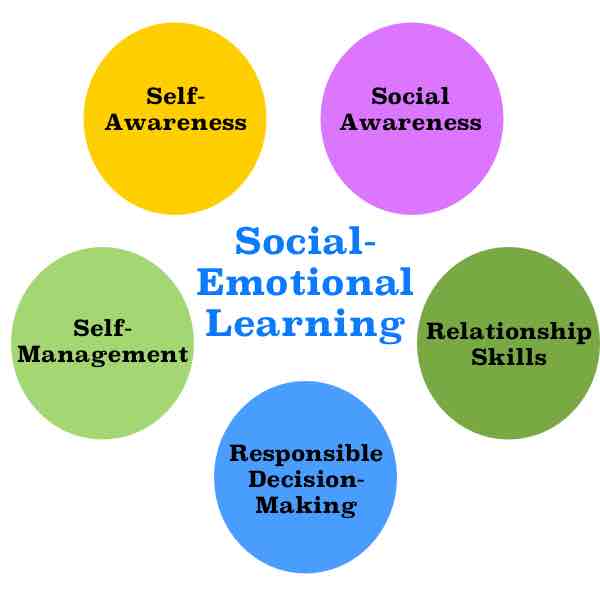
Empathy Unleashed: Nurturing Social Emotional Learning for Growth
Social Emotional Learning (SEL) is gaining prominence as an essential component of education, emphasizing the development of emotional intelligence, interpersonal skills, and resilience. This article explores the transformative power of SEL in fostering a holistic approach to learning and personal growth.
Understanding the Essence of Social Emotional Learning
At its core, Social Emotional Learning is about equipping individuals with the skills to understand and manage emotions, build positive relationships, and make responsible decisions. SEL goes beyond academic achievements, focusing on the emotional and social aspects that contribute to a well-rounded and resilient individual. It recognizes the interconnectedness of emotions and learning, creating a foundation for a healthier, more empathetic society.
Cultivating Self-Awareness and Emotional Regulation
The journey of Social Emotional Learning begins with self-awareness. Students learn to recognize and understand their emotions, identifying triggers and patterns. Through this self-awareness, individuals develop emotional regulation skills, enabling them to manage stress, navigate challenges, and maintain a positive mental state. Cultivating these skills lays the groundwork for a balanced and emotionally intelligent approach to life.
Building Strong Interpersonal Relationships
One of the pillars of Social Emotional Learning is the emphasis on building strong interpersonal relationships. SEL fosters empathy, communication skills, and the ability to collaborate effectively. Students learn to understand and appreciate diverse perspectives, leading to a more inclusive and compassionate community. These interpersonal skills extend beyond the classroom, preparing individuals for success in various social settings.
Promoting Responsible Decision-Making Skills
SEL empowers individuals to make responsible decisions by considering the impact on themselves and others. It emphasizes critical thinking, ethical considerations, and problem-solving skills. Through guided exercises and real-world scenarios, students develop the ability to make informed choices, navigate ethical dilemmas, and contribute positively to their communities.
Incorporating SEL into Academic Curricula
Integrating Social Emotional Learning into academic curricula enhances its impact. By infusing SEL principles into subjects such as literature, history, and science, educators create a holistic learning experience. SEL becomes a thread woven into the fabric of education, reinforcing its significance and providing students with continuous opportunities for emotional and social growth.
SEL in Virtual Learning Environments
The advent of virtual learning has underscored the importance of SEL in the digital realm. Social Emotional Learning is not confined to physical classrooms; it extends seamlessly into virtual learning environments. Educators leverage technology to incorporate SEL activities, maintain connectedness, and support students in developing emotional resilience, even in the digital landscape.
Addressing Mental Health and Well-Being
In an era where mental health awareness is paramount, Social Emotional Learning plays a crucial role in addressing the well-being of students. SEL programs provide a platform for open discussions about emotions, stressors, and coping mechanisms. By fostering a supportive environment, SEL contributes to the creation of emotionally resilient individuals who are better equipped to handle life’s challenges.
Empowering Teachers as SEL Facilitators
Teachers are integral to the success of Social Emotional Learning. They serve not only as instructors but also as facilitators of emotional growth. Professional development programs empower educators with the knowledge and skills needed to integrate SEL into their teaching practices effectively. When teachers model and prioritize SEL, students witness its value in action, reinforcing its significance in their own lives.
SEL and Lifelong Learning Skills
The impact of Social Emotional Learning extends far beyond the school years. SEL equips individuals with lifelong learning skills that are essential in personal and professional contexts. The ability to collaborate, communicate effectively, and navigate complex social dynamics becomes an asset in various life stages, contributing to personal success and societal well-being.
Conclusion: Nurturing Empathy for a Brighter Future
In conclusion, Social Emotional Learning is a catalyst for nurturing empathy, resilience, and emotional intelligence. By integrating SEL principles into education, we foster a generation of individuals who are not only academically proficient but also emotionally and socially adept. As we prioritize Social Emotional Learning, we unlock the potential for a brighter, more compassionate future.
Explore more about Social Emotional Learning at Social Emotional Learning.



